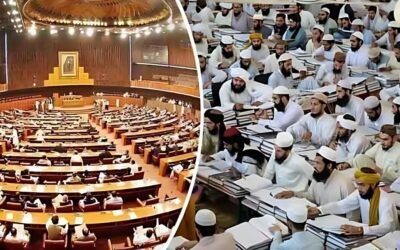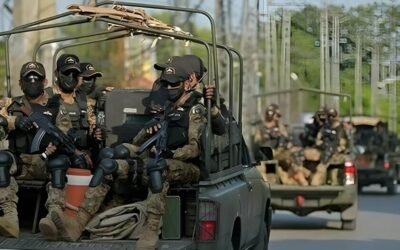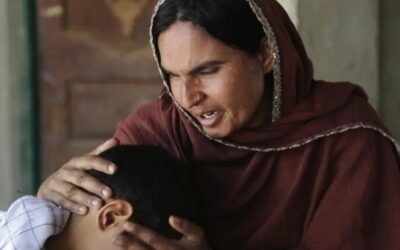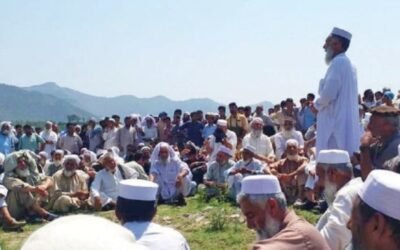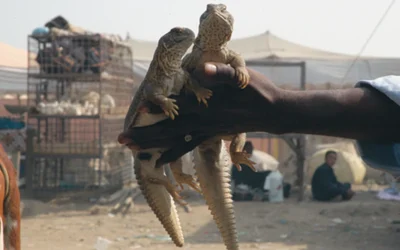Rebuilding from Within
Can they help create lasting peace? Community involvement is essential for change. In 2018, Pakistan saw a significant change. The Federally Administered Tribal Areas (FATA) merged with Khyber Pakhtunkhwa. This was a key step in tackling violence. It aimed to promote development. The former FATA region faced violence and disorder. Now, it is in a fragile but hopeful state. The main question is about the people.
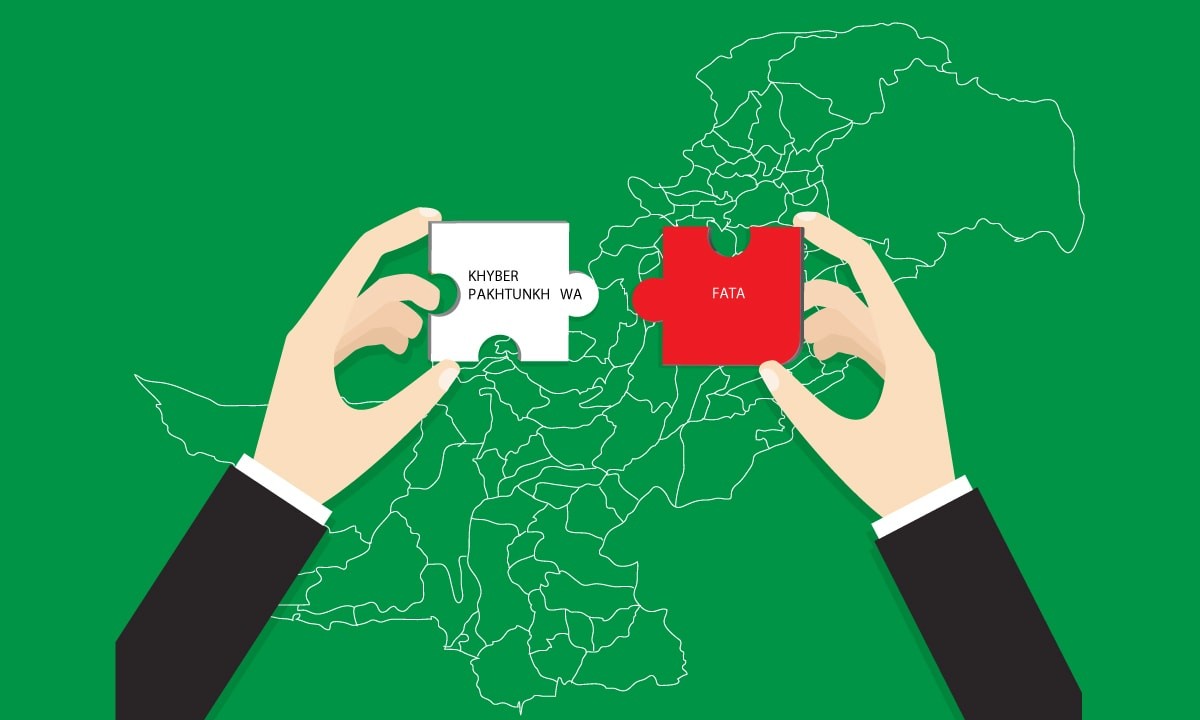
Source: Herald
From Conflict to Civilian Engagement
The former tribal areas of Pakistan have faced numerous challenges, particularly with terrorism, over the past decade. Since their merger into Khyber Pakhtunkhwa in 2018, these regions have shifted their focus towards reform and development. Local communities, including traditional leaders, youth, and women, are participating in peace-building efforts. Education is crucial in this transformation, with schools previously targeted by extremists being rebuilt and new programs promoting tolerance and civic engagement. The Government of Pakistan also shared on X that steps are being taken to improve student enrollment after the FATA merger. In areas like North Waziristan and Bajaur, young people are leading discussions on identity and coexistence. Despite ongoing issues like poor infrastructure and economic challenges, school attendance is rising, fostering hope and optimism for the future.
FATA Merger: Steps that are to be taken by the Government to increase student enrolment and improve infrastructure in the education sector.#FATAMerger#فاٹا_کا_انضمام_خوشحالی_کا_انتظام pic.twitter.com/hCpkVzMB7c
— Government of Pakistan (@GovtofPakistan) July 20, 2020
Local Ownership: Community Voices for Stability
Local groups are working to resolve conflicts. Community councils, peace committees, women’s organizations, and youth clubs are taking action. Experts like Ali Gohar from Just Peace Initiatives see this as empowering. In Pakistan, the Strengthening Participatory Organization (SPO) helps grassroots networks. They promote democratic governance and fairness through training and partnerships. Historically, FATA was viewed mainly through a security lens. Now, peacebuilding focuses on the needs and voices of the people. Community councils and youth groups lead discussions on rebuilding and reform. It’s essential to include tribal elders and religious leaders in dispute resolution. This is especially crucial in areas with limited government presence. These initiatives show how community cooperation is essential for building peace.
Challenges & Skepticism from Within
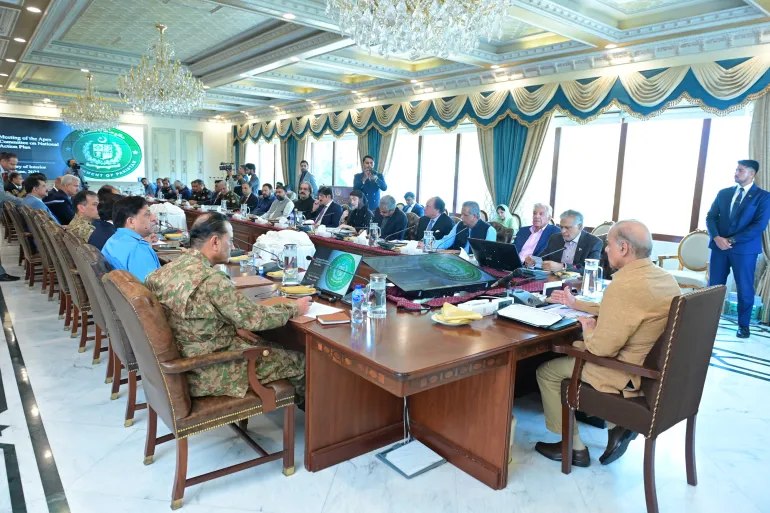
Source: Al Jazeera
The government had good intentions. However, political and tribal leaders raised concerns. Maulana Fazlur Rehman and a tribal council criticized the Azm-e-Istehkam initiative. They called it potentially harmful. They worried about distrust and possible economic damage. Past experiences of displacement added to their concerns. They noted the lack of local consultation. Other political parties like PTI and ANP echoed these sentiments. They demanded more transparency and oversight from parliament. They emphasized the need for political legitimacy. Involvement of the public in decision-making was also necessary.
You may also read: The FATA Story: Geographical, Governance and Military Factors
State Strategy: Safety, Laws, and Growth
In June 2024, the government started Operation Azm-e-Istehkam. The goal is to improve safety and boost the economy. The budget for the operation is Rupees 60 billion. Rupees 20 billion will be spent on advanced equipment. Responses to the operation have been mixed. Critics, like PTI and JUI-F, say it lacks parliamentary approval. They argue it could undermine regional authority. They emphasize the need for civilian inclusion and following the constitution. In contrast, PML-Q and Punjab PML-N support the initiative. They passed a resolution in favor of it in the Punjab Assembly. This situation highlights the need for inclusive governance and transparency. It is important for ensuring peace and stability.
In April 2024, a conference in Peshawar gathered global organizations like USAID and the World Bank to focus on improving Pakistan’s tribal areas, previously part of FATA. The Asian Development Bank announced a $1 billion investment in sustainable development, while the World Bank pledged $500 million for infrastructure, energy, and education. This signifies a shift in perception, recognizing these regions as having potential for positive change through international partnerships.
Fusion Intelligence: NIFTAC Strengthens Peace Infrastructure
On May 6, 2025, Prime Minister Shehbaz Sharif inaugurated the National Intelligence Fusion & Threat Assessment Centre (NIFTAC) in Islamabad. This center operates under the National Counter Terrorism Authority (NACTA). It consolidates data from over 50 government agencies. Its goal is to enhance threat analysis and response. Provincial Intelligence Fusion & Threat Assessment Centers (PIFTACs) were also set up in each provincial capital. NIFTAC focuses on security. It aims to build trust in local communities. This is especially important in areas that were part of the Federally Administered Tribal Areas (FATA).
You May Like To Read: Banned Clerics and Bolder Platforms: Can We Really Silence Extremism Online?
Operation Sarbakaf and Community Accountability
From late July to August 2025, Operation Sarbakaf took place in Bajaur, FATA, revealing the need for local community involvement amidst limited military action. The operation began without provincial approval, leading to public protests and local jirgas. Military operations paused as communities expressed their concerns. Once resumed, the provincial government responded by easing restrictions and increasing community meetings. Displaced families received Rs 50,000 in compensation. These actions demonstrate a growing awareness of democratic principles, emphasizing the importance of community input and accountability in building trust during military operations.
Security with Sensitivity
Pakistan’s security forces are stabilizing the former FATA regions. They engage with the community through medical camps. They also set up vocational training centers. This helps build trust. While reaching out, they gather intelligence too. They implement counter-extremism programs. Their approach shows that proper security is about mutual respect. It’s about providing opportunities for everyone, not instilling fear.
Women: The Quiet Champions of Peace
In the former Federally Administered Tribal Areas (ex-FATA), women have long played a vital role. They bring communities together. Research shows that female leaders lead peace-building efforts. Often, they do this without recognition. Their participation in education and healthcare is growing. They also help with local conflict resolution. Their efforts break down traditional barriers. This work helps create a more united and peaceful society.
Voices Over Force: A Multi-Layered Peace Strategy
In conclusion, lasting stability in ex-FATA hinges on inclusive governance and community engagement. By fostering dialogue, empowering local voices—especially youth and women—and forming strategic partnerships, the region can transform from a history of violence to a model of resilience. With the right support and commitment, ex-FATA has the potential to achieve sustainable peace and stability.


